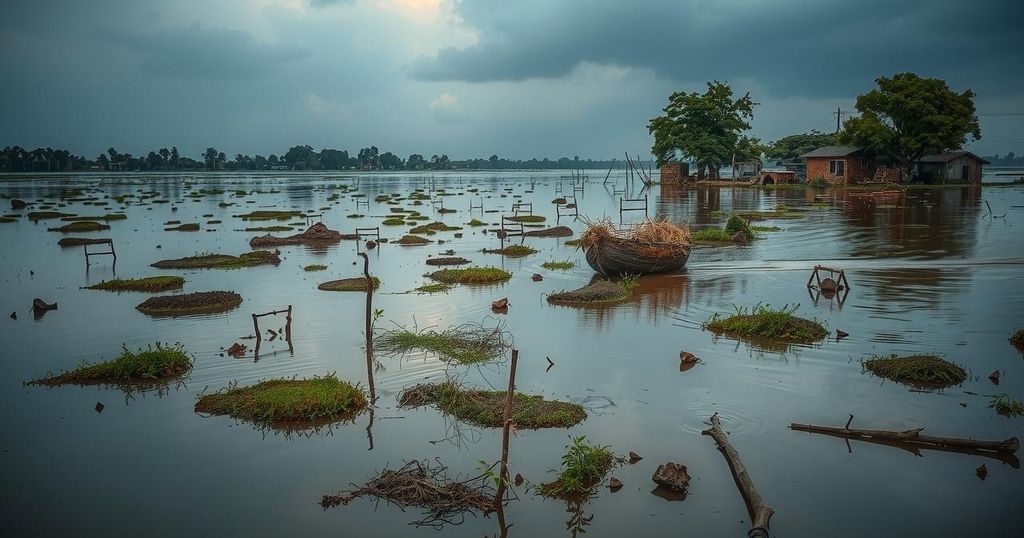Severe Flooding in South Sudan Compounds Health Crisis: WHO Response Initiatives

South Sudan is facing significant flooding, displacing over 226,000 people and damaging infrastructure and health services. The WHO is actively mobilizing responses to address health crises exacerbated by the floods, with a focus on essential health service provision and resilience building against climate change impacts.
South Sudan is currently experiencing catastrophic flooding, resulting in unprecedented devastation across the nation. Over 226,000 individuals have been displaced, and significant infrastructure has been compromised, including roads and essential services. The flooding has impacted 42 of the 78 counties in South Sudan, leading to the submersion of 58 health facilities and rendering an additional 90 health facilities inaccessible. These disruptions are particularly critical as they cut off many communities from the capital, Juba, where advanced medical services are available. As of October 4, 2024, the floods have affected an estimated 890,000 individuals in these disaster-stricken counties. The ongoing humanitarian crisis is further complicated by the influx of nearly 800,000 refugees and returnees from neighboring Sudan, heightening health risks such as cholera and malaria. As a response, the World Health Organization (WHO) has mobilized to provide essential health services in partnership with the South Sudan Ministry of Health. The WHO has distributed 88 metric tons of emergency health kits to key locations and continues to monitor health threats in affected areas, striving to build a more resilient health system in the face of climate change. The organization emphasizes the necessity of sustainable investment to fortify health infrastructure against climate-related disasters.
The flooding in South Sudan is not a novel occurrence but rather a grave situation exacerbated by climate change. This phenomenon typically arises during the rainy season, which spans from April to November. However, the intensity and frequency of the floods have increased dramatically, resulting in severe humanitarian crises that affect both the local communities and the refugee population from Sudan. The compounded challenges of displacement and deteriorating health conditions necessitate robust international intervention, particularly in terms of medical supplies and health services. The WHO’s involvement is crucial as it seeks to address immediate health needs while fostering long-term resilience against climate impacts.
The severe flooding in South Sudan represents a dire humanitarian crisis, further worsened by the ongoing conflict and health challenges such as cholera and malaria. The response from WHO is vital in addressing the immediate needs of flood-affected populations while laying the groundwork for a more resilient health system capable of facing future environmental challenges. The situation underscores the urgent need for sustainable investments in health infrastructure to protect vulnerable communities effectively.
Original Source: www.afro.who.int







